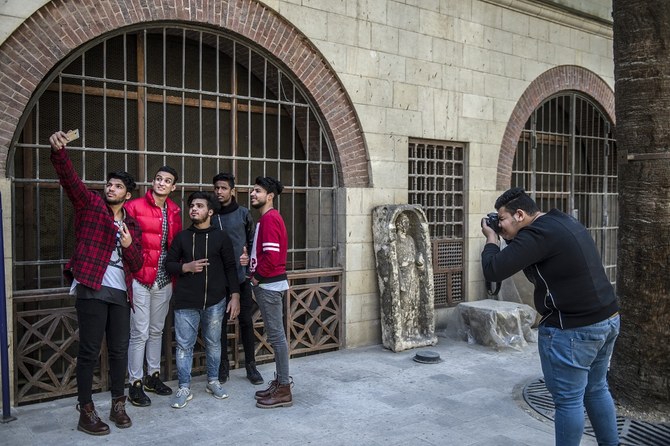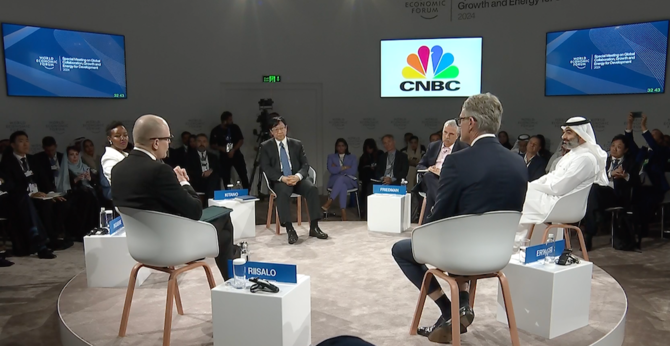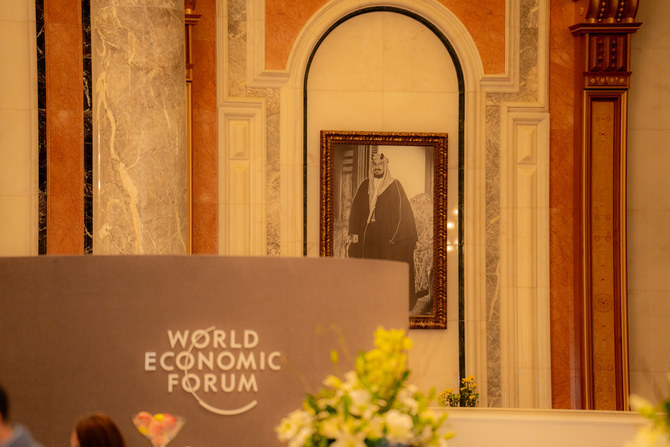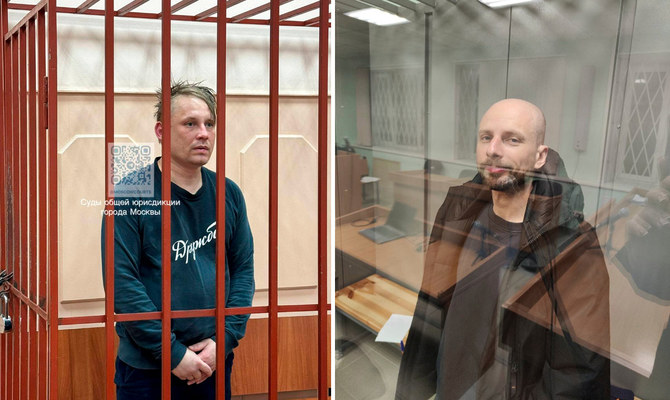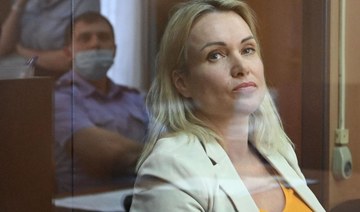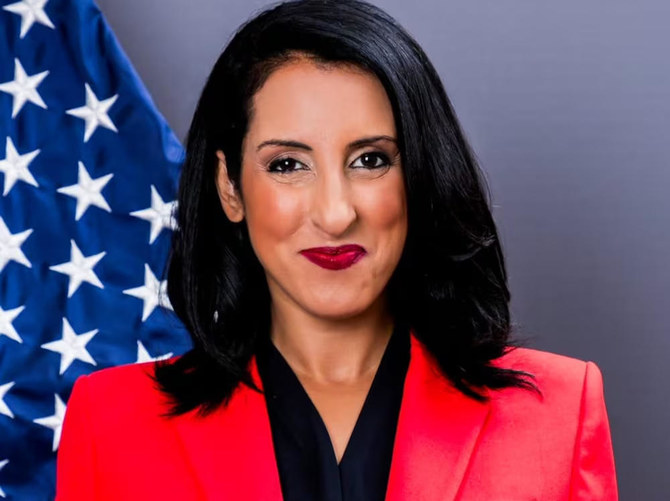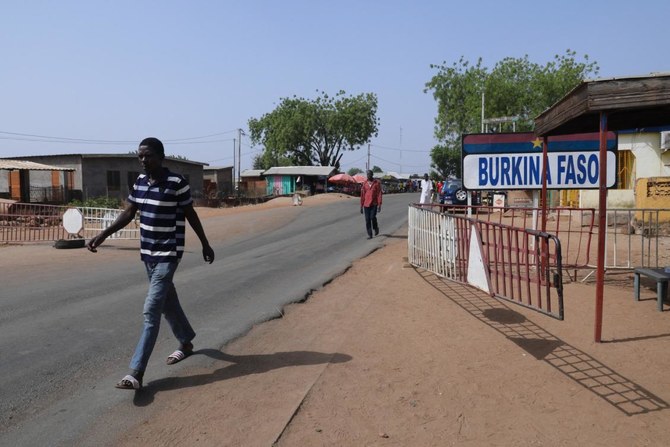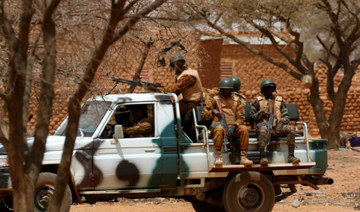DUBAI: Social media is no longer a mere secondary method of communication. In recent years, it has become a powerful tool that can influence public opinion and educate and influence the youth — facets demonstrated over the last decade by the impact of networks on major political and social events in the Middle East.
In the early years of the Arab Spring, even before Instagram was as widespread as it is today, activists resorted to Facebook and Twitter to amplify their demands.
During the Beirut blast of Aug. 4, 2020, Lebanese at home and abroad resorted to social media to depict the aftermath of destruction and cry to the world for help, as well as to mobilize their community at home and abroad to assist those in need.
One could argue that the violence that took place in Palestine, the Gaza Strip and Israel in May gained more visibility internationally due to social media. The pleas were heard, the violence was seen and even experienced vicariously thanks to widespread sharing on social networks.
During such events, critical and verified information was shared just as much as news that misinformed and relayed falsified data — the double-edged sword of social networks.
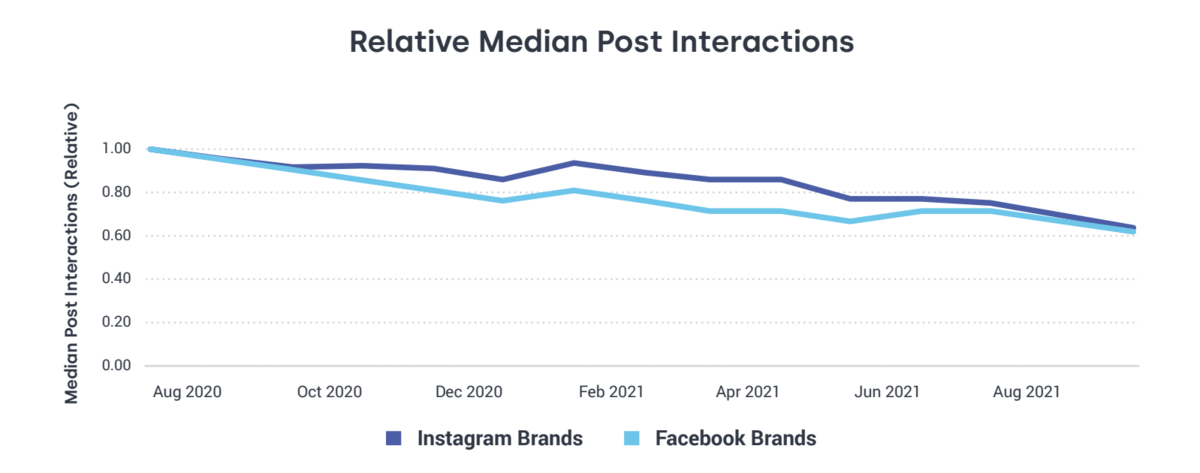
Global social media dependency has continued to rise in recent years, particularly during the coronavirus disease pandemic. According to Hootsuite’s July 2020 report on Global Digital Growth, since COVID-19 there has been a 10 percent increase in digital adoption compared with 12 months earlier. Almost 51 percent of the global population currently uses social media, with a rate of 1 million new users per day, according to Simon Kemp.
As for the Arab world, the 2021 Arab Barometer report on the digital divide in the region confirmed an increase in internet usage for all countries in the Middle East and North Africa during the pandemic, which Daniella Raz argues in The Arab World’s Digital Divide has fostered “a digital divide that is affected by the economic status of the country and education level of its citizens.”
According to the Arab Youth Survey 2021, 61 percent of Arab youth use social media as a news source, compared with 34 percent who consume news online and 9 percent through newspapers — making social media the number one source of news for young people.
The MENA region’s youth population is increasingly dependent on social media platforms to access information, particularly video and visually driven social networks, says Fares Akkad, director of media partnerships for news in growth markets across Asia Pacific, Latin America, Middle East Africa, and Turkey at Meta.
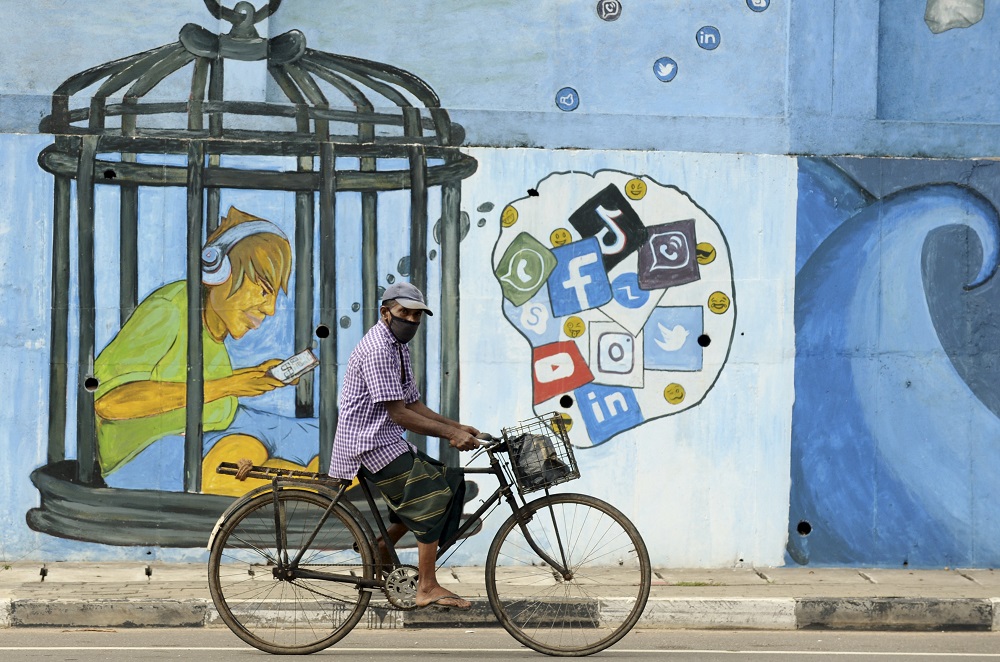
A man wearing a facemask as a preventative measure against the COVID-19 virus rides a bicycle in front of a mural. (AFP/File Photo)
“This is a trend that has raised its bar overtime and has been boosted especially during the pandemic and it is likely to grow at a larger and faster pace,” he tells Arab News.
“We have seen the strength and scale of the digital world, giving a platform and voice to millions who may otherwise not have it, providing an open and accessible venue through which regular people—can connect, access a plethora of information from politics to lifestyle and fashion.”
During COVID-19 there was a noticeable shift in how the Arab public retrieves information, from traditional media to new media, particularly social media. This led many Arab governments to redefine how they use networking platforms as ways to communicate critical information with their populations.
The World Health Organization also launched its official pages on social media platforms, including WhatsApp — an action that acknowledged how, during the pandemic, social media became a primary source through which official information and data was disseminated.
However, the same Arab Youth Survey conducted in 2019 showed how 80 percent of Arab youth use social media as a source of information, compared with online (61 percent) and newspapers (27 percent).
The drop in using social media as a news source — from 80 percent in 2019 and 79 percent in 2020 to 61 percent in 2021 — highlights the rise in hesitation from using these platforms to get information.
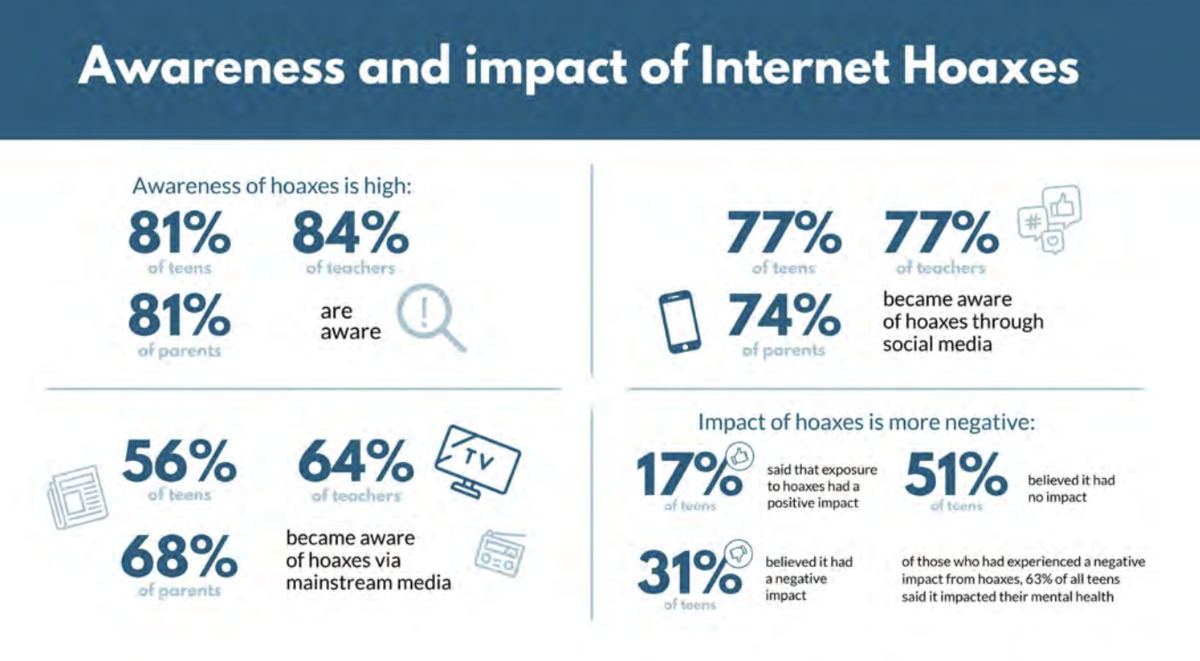
“From most of the surveys I have done it is shown clearly that much of the younger generation today is relying on social media for news,” Jad Melki, associate professor and journalism and media studies director at the Institute of Media Research and Training at the Lebanese American University, told Arab News.
“A lot of the youth don’t follow news to start with — they are more interested in entertainment than following news.”
Reluctance to use the platforms stems from negative attributes — as critical information is shared to the public for the greater good, so too are false rumors and misinformation, which have contributed to a rise in fear and panic among among people. This is true particularly among the youth — many of whom do not yet have the experience to fact-check information or turn to other sources.
A case in point is Facebook whistle-blower Frances Haugen’s testimony before the US Congress in October, where she stated that Facebook’s products “harm children, stoke division and weaken our democracy.” She claimed the company should declare “moral bankruptcy” if it is to move forward.
Haugen also accused the company of sowing divisions and fueling ethnic violence, placing — as she said in Washington — “astronomical profits before people.”
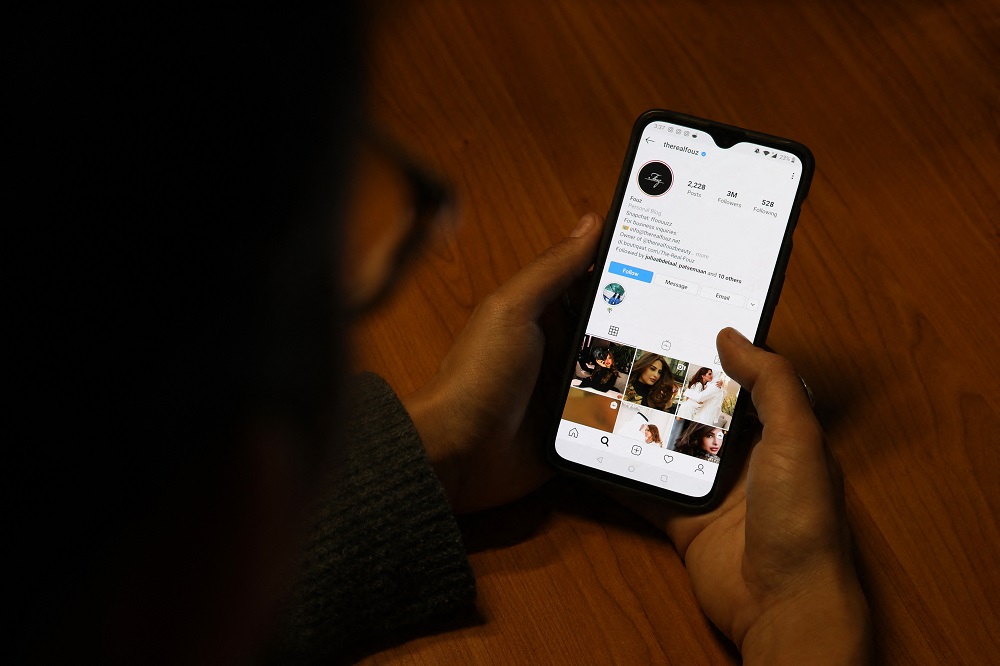
A woman looks at the Instagram page of Saudi influencer Ragda Bakhorji, in Dubai on April 7, 2020. (AFP/File Photo)
Haugen came forward as the source of a series of revelations in the Wall Street Journal based on internal Facebook (now Meta) documents that revealed the company knew how harmful Instagram was to teenagers’ mental health, and how changes to Facebook’s News Feed feature had also made the platform more divisive among young people.
Haugen’s testimony suggests social media is no longer a secondary method of communication, but a powerful tool that influences public opinion, and there are positives and negatives in its use.
It can educate just as much as it can misinform; bring people and cultures together as well as fuel terrorism and extremism. In many cases, social media is also overtaking mainstream media outlets as the preferred method of choice for how to obtain information.
Akkad affirms that Meta’s house of apps has prioritized making sure “everyone can access credible and accurate information.” He says Meta removes false claims about vaccines, conspiracy theories, and misinformation that could lead to physical harm.
Currently, Akkad says, Meta removes content that violates its community standards, including more than 20 million pieces of false COVID-19 and vaccine content.
The platform has built a global network of over 80 independent fact-checking partners who rate the accuracy of posts covering more than 60 languages across its apps, with its partners in the Arab region including AFP, Reuters and Fatabyyano.
It has also displayed warnings on more than 190 million pieces of COVID-related content on Facebook that Meta’s fact-checking partners rated as false, partly false, altered, or missing context.
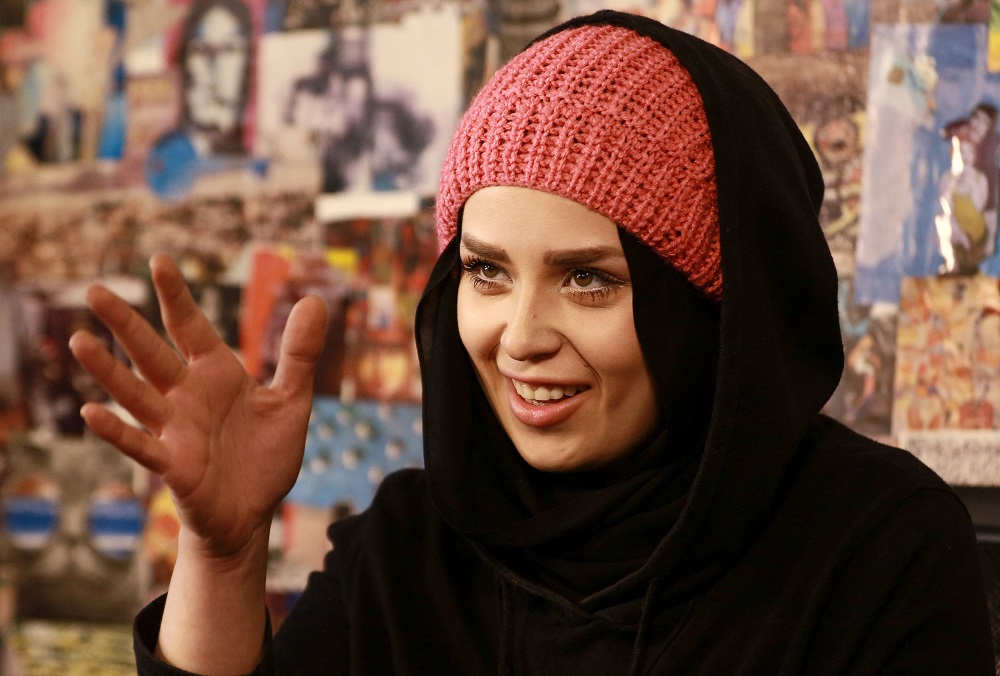
Jordanian make-up artist Alaa Bliha, 27, speaks to a journalist in the basement apartment where she lives with her mother and young brother in the capital Amman, on February 2, 2021. (AFP/File Photo)
On the positive side, Meta has helped, says Akkad, over 2 billion people find credible COVID-19 information through its COVID-19 Information Center and News Feed pop-ups.
Yet is this enough to diminish the spread of false information?
Arpi Berberian, a social media manager at Create Media Group in Dubai, believes that to protect Arab youth, or any people at that, social media must be regulated.
While it is the primary source for young people in terms of receiving and processing news, “it should also be up to the receiver to fact check and source check what they read online. Especially when it comes to political news,” she told Arab News.
“It is hard to generalize across Arab countries given the different political systems, educational levels and cultures,” said Melki.
“Lebanon, Syria, Palestine, Jordan and Iraq or what we call Western Asia, has been the most in turmoil outside Yemen and Libya, and part of that turmoil is related to social media habits and obtaining information.”
Melki says that you can see, as the youth get older and the generation shifts, they become more and more interested in politics and following news. Moreover, as Melki points out, traditional news is now circulating largely online and through social media.
“However, a significant majority still watches television — TV remains king across all demographics, particularly when there is a conflict,” he says.
“We did a survey during the Lebanese protests in 2019 and television was the number one way to receive news followed by social media.”
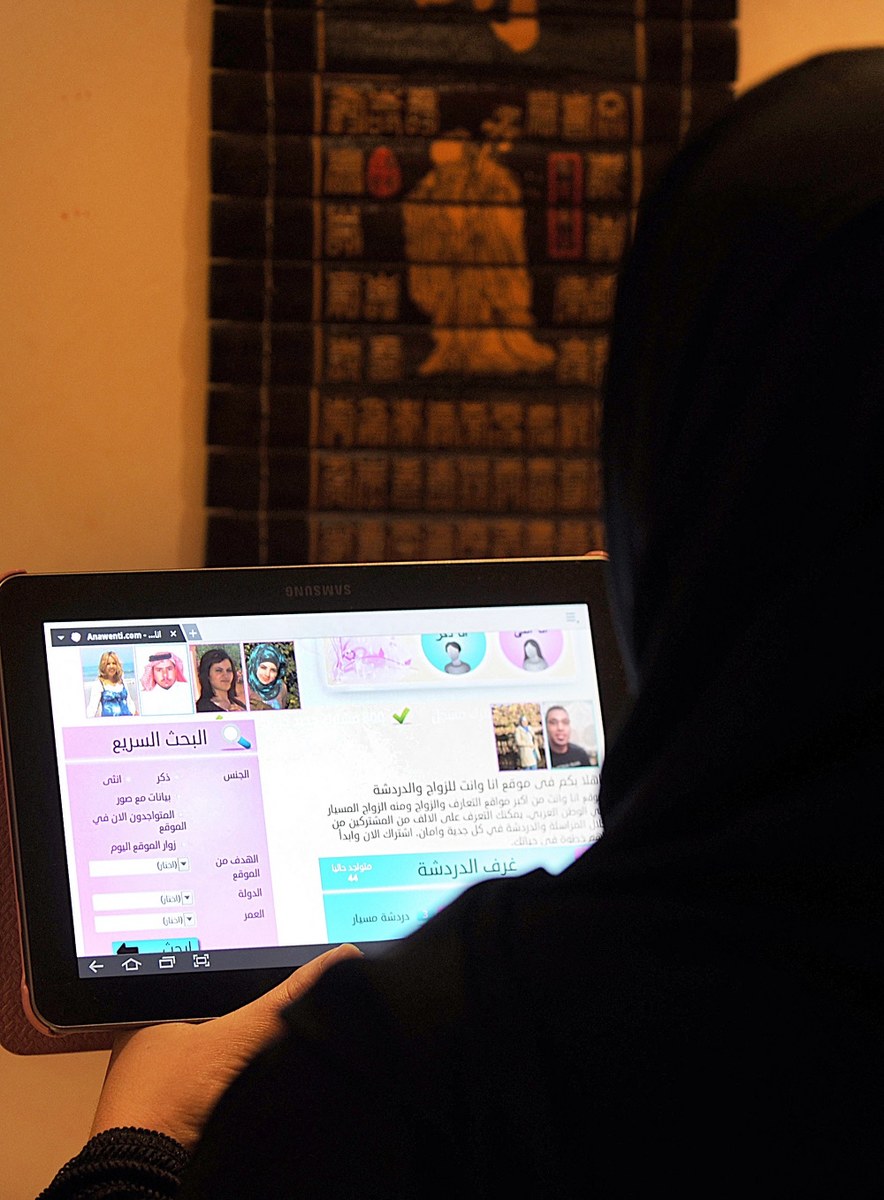
A picture taken on February 4, 2013 in Riyadh shows a Saudi woman using a tablet computer. (AFP/File Photo)
Melki added that the survey found the same regarding Syrian refugees whether inside or outside of camps — television is the number one way to receive the news.
Can social media dependency in the Arab world be reversed and does it need to be?
“I don’t think it can be reversed. It can be improved though,” says Berberian. “There needs to be guidelines imposed by governments on social media outlets, especially on major outlets that have millions of users of all ages.
“It also doesn’t seem to be a good idea to allow some of the major social media platforms to be run by one entity without any balance. Accountability and the safety of its users needs to be at the forefront of social media’s outlets.”
If social media dependency cannot be reduced in the Arab world, and it has become, as analysts state, one, if not the, primary way for the youth and the general populace to receive critical information, then the way forward is for regulation and education. But then who is to regulate and educate and by what terms?
Especially in nations that lack opportunities for youth available elsewhere, social media becomes a window to the world and one with endless social and business possibilities, and this is the double-edged sword of social media: Its pros and cons can almost be equally weighed.



